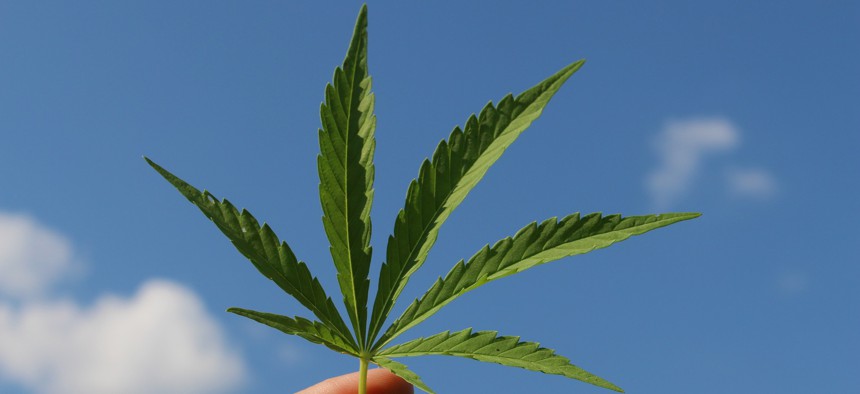Policy
Florida hemp industry cheers changes to bill seeking to regulate businesses
Before amendments, business owners were saying the bill could have killed the $10 billion industry.

Image by TinaKru from Pixabay
Changes to a bill aimed at regulating the hemp industry in Florida have the state’s hemp businesses breathing a sigh of relief after their concerted efforts to lobby lawmakers.
The bill (HB 1475) , a committee bill from the Agriculture, Conservation & Resiliency Subcommittee that is ready for the House floor, would have placed steep caps on THC in hemp-derived products, as well as restrictions on Delta-8 THC products. THC, or tetrahydrocannabinol, is the psychoactive ingredient that causes the high from marijuana, for example. CBD, or cannabidiol, is extracted from hemp and used in a variety of products, often to treat pain and relieve inflammation.
Under amendments in the House Infrastructure Strategies Committee, the caps were boosted to industry-friendly standards and the synthetic ban was removed, leaving bill components that aimed at reducing youth consumption, like requiring ID checks at purchase and banning the use of cartoon characters in packaging.
The change in direction did not come out of the blue but after weeks-long pushback from advocacy groups representing the 10,000 hemp-related businesses in Florida.
One of the groups, the Florida Healthy Alternatives Association (FHAA), commissioned an economic study that found the legislation would cause over 100,000 jobs in the industry to dry up overnight, as the ban on synthetics and the THC cap were too steep to allow businesses to create profitable products. They have also taken to the belief that the push for the bill came from the medical marijuana industry.
The production of hemp, which was outlawed in the 1930s, was legalized in the Farm Bill signed by then-President Donald Trump in 2018. In Florida, lawmakers passed legislation to create a state hemp program the next year. Hemp, which belongs to the cannabis plant family and thus is related to marijuana, was cultivated for thousands of years and its fibers were used in clothing, rope, sails, shoes and paper.
Matt Schwarmann, vice president of FHAA and the owner of Outpost, a CBD contract-manufacturer company, pointed to a carve-out in the bill that would have exempted approved medical marijuana companies from any caps or synthetic bans.
He believes the bill as previously written would have given the state’s medical marijuana companies the ability to continue to produce Delta-8 products while hanging smaller businesses out to dry. “All small businesses, mom and pop businesses or medium-sized businesses like myself … the way the bill was written, every single one of these goes out of business immediately,” he said.
He also said the bans on synthetic manufacturing, which uses chemical reactions in its production process, in the previous version of the bill made it clear the bill’s drafters didn’t understand the industry. “We synthesize literally everything. If you've had a multivitamin in the last week you’ve had something that was manufactured using synthesis. Even the creamer in your coffee uses it. Like we synthesize everything because it's economical and it makes sense. It's not a bad thing,” he said.
Beau Whitney of Whitney Economics, who conducted the economic study in Florida and others in states where similar hemp legislation is being pursued, said the nationwide push is due to regulatory uncertainty from the federal government and fear mongering from the medical marijuana industry in an attempt to protect their profits.
Understanding the size of hemp’s economic impact – he projected an over $30 billion impact annually in Florida – goes a long way toward changing their perspective, Whitney said. The development of the hemp industry doesn’t just mean CBD production as parts of the plant now can be used to make hempcrete, plastics and animal feed.
“What's common in legislatures across the country is they don't understand just how large this market actually is. There's a justifiable focus on public safety and public access, but sometimes they don't realize that they need to balance public safety and public access with the growth and development of a nascent industry,” Whitney said.
The legislation comes as official Florida is moving away from backing hemp.
Republican Agriculture Commissioner Wilton Simpson backed the previous version of the bill. He also is removing the “Florida Hemp” product designation for hemp products grown in the Sunshine State, and quietly disbanded a task force meant to advise the Florida Department of Agriculture and Consumer Services about the hemp industry. A request for comment is pending with his spokespeople.
Nikki Fried, the previous commissioner who is now chair of the Florida Democratic Party, enacted many of the department’s hemp policies. Fried, who also created a “director of cannabis” position, has publicly criticized him for stepping away from the industry.
Additionally, the changes aren’t yet set in stone. The Senate version (SB 1676) of the bill has not yet been amended, but that chamber may well vote on the House version if it makes it to their chamber first.
Despite having to come to Tallahassee to advocate for themselves, hemp business owners are hopeful that the changes will stick. Shai Ortiz and Brandon Gomes, both co-owners of the Florida-based hemp company Siesta G, said they were happy with the amendments and several legislators who worked with them to make the changes possible.
Ortiz specifically thanked state Reps. Hillary Cassel, a Dania Beach Democrat, and Will Robinson, a Bradenton Republican, for working to keep the parts of the bill that limit access to children but still allowing their industry to thrive.
“Me and Brandon are both parents. So we very much respect that purpose. However, we don't like to see it haphazardly weaponized against an entire industry for malicious, monopoly behavior,” she said.
Gomes said their experience goes to show that some legislative leaders in Tallahassee are open to listening to their constituents. “It was a really enlightening process to see that people matter and business owners matter. I was happy to see that,” he said.
Contact Tristan Wood at twood@cityandstatefl.com. Follow him on Twitter: @TristanDWood.
NEXT STORY: ‘Radioactive roads’? Environmentalists want brakes on Florida plan to reuse toxic mining waste
